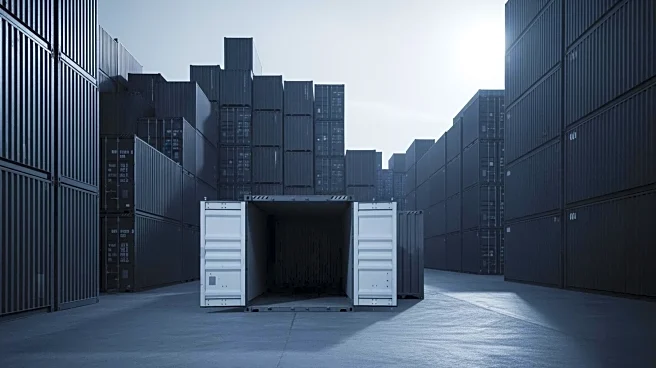What's Happening?
Baker Hughes has been awarded a contract by Bechtel Energy Inc. to supply primary liquefaction equipment for Train 5 of NextDecade's Rio Grande LNG project at the Port of Brownsville, Texas. This order follows a previous contract for Train 4 and is part
of a larger framework agreement covering Baker Hughes' technology and services for Trains 4 through 8. The equipment includes two Frame 7 gas turbines and six centrifugal compressors, which will enable an additional production capacity of approximately 6 million metric tons per annum (MMtpa) of LNG. The collaboration between Baker Hughes and Bechtel highlights the former's industry-leading technology and expertise, crucial for meeting the growing global energy demand.
Why It's Important?
The expansion of the Rio Grande LNG project is significant for the U.S. energy sector, as it will substantially increase LNG export capacity from the Gulf Coast. This development is crucial in addressing the rising global demand for energy, particularly in regions seeking cleaner alternatives to coal and oil. The project not only strengthens the U.S.'s position in the global LNG market but also supports economic growth through job creation and infrastructure development. Stakeholders such as Baker Hughes and Bechtel stand to benefit from the technological advancements and increased operational capacity, reinforcing their roles in sustainable energy solutions.
What's Next?
As the Rio Grande LNG project progresses, Trains 1 through 3 are nearing completion, with additional trains planned to further expand capacity. Baker Hughes is also enhancing its digital presence at the facility by deploying its Cordant Asset Health platform across the initial trains, improving equipment monitoring and operational performance. The continued collaboration between Baker Hughes, Bechtel, and NextDecade is expected to drive further advancements in LNG infrastructure, supporting the transition to sustainable energy sources.
Beyond the Headlines
The expansion of LNG facilities like Rio Grande is pivotal in the global shift towards cleaner energy. It reflects broader industry trends where technological innovation and digital solutions are increasingly integrated into energy infrastructure. This development may also influence regulatory and environmental policies, as stakeholders balance economic growth with sustainability goals.















